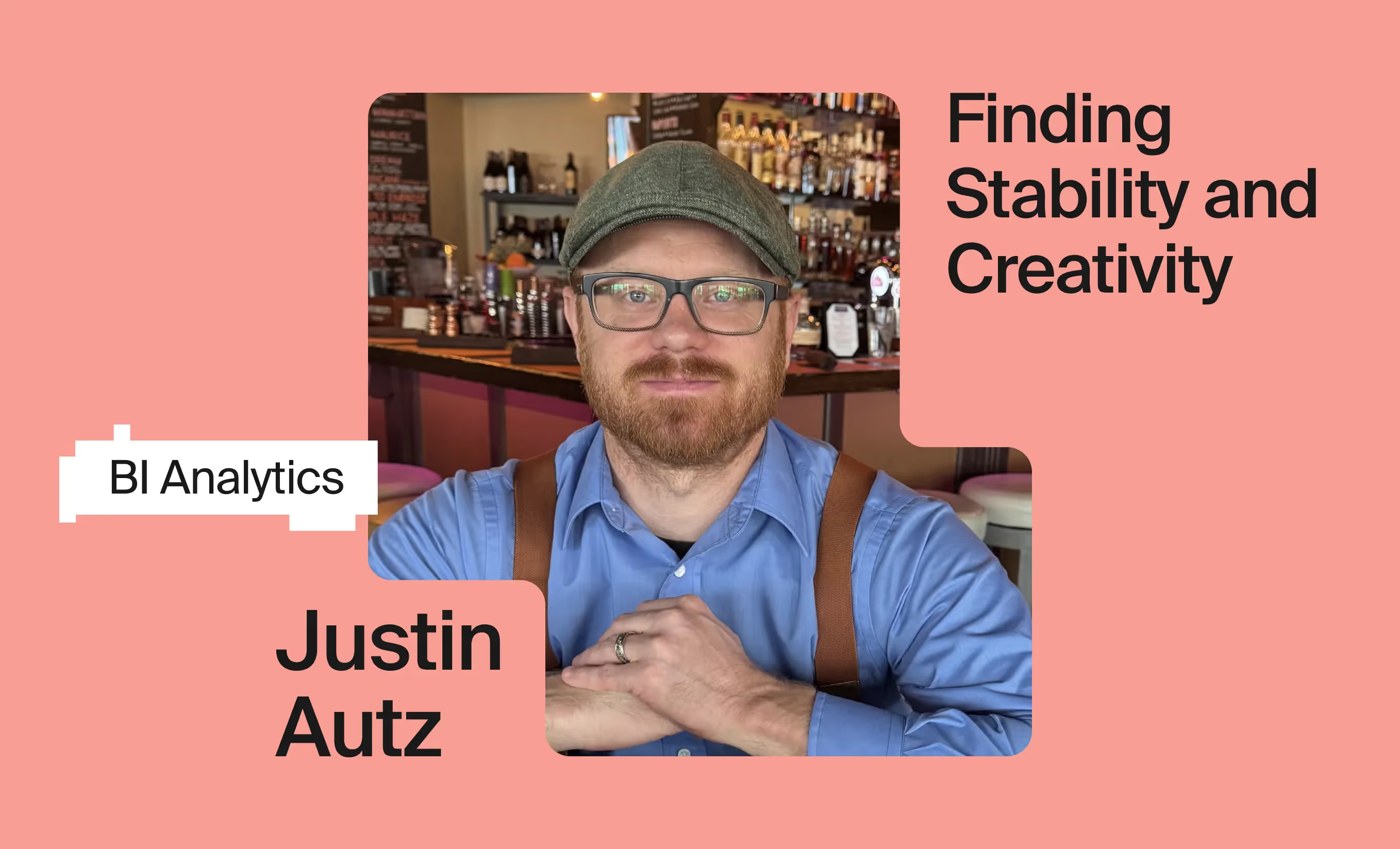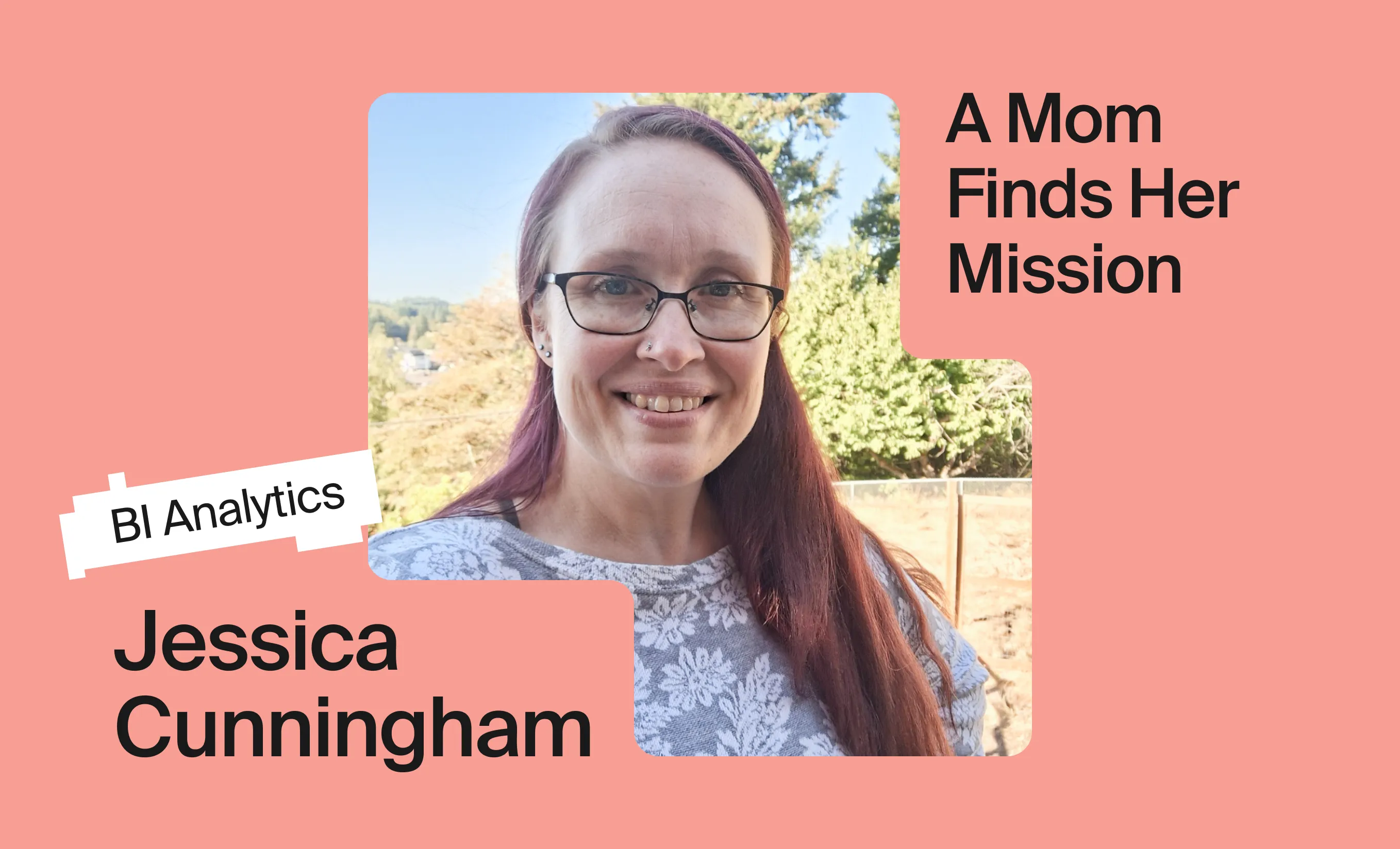When you think about your last time at a hospital, several adjectives probably appear in your head to describe the experience. Relaxing is likely not one of them. And even if your time in the institution’s care ended joyfully — the birth of an eagerly awaited child, the confirmation that you’re free of a serious illness — you nonetheless entered the building with serious concerns.
This is the heavy environment that people work in every day, sometimes for shifts that last half a day. And when you’re on hour 11 of staying stoic while handling people who might be having the worst days of their lives, you can find yourself burning out.
Will Hollis did. After spending nearly seven years in this situation, he realized he needed a change.
Here’s how he mastered a new field and made the switch to a low-stress job that’s giving him time to pursue his creative passions.
Pulling focus on his professional life
The job at the hospital was only one of two high-intensity roles Will was tackling. See, he’d studied filmmaking in college, and was trying to make his way into the industry. It was an unforgiving balancing act. “I did 12-hour shifts there three days a week, and then the other four days I was doing freelance filmmaking,” he said. “I did that for probably two to three years. It ages you a little bit.”
Sure, he had extra days off, but he’d lose one of those days: “You'd always need a catch-up day because when you're working 12 hours, you're just exhausted, so you're losing a day for recovery.”
And he couldn’t even rely on a consistent schedule. “In the medical field, you're always working a rotating schedule and those days can flex in and out,” he said.
Now, that would be difficult enough, but the nature of his work was also uniquely stressful. He had to be ready to professionally and calmly handle anything that came through the emergency department doors. “The goal is to have strength under stress and get them checked in,” he said. “You have to constantly have your guard up to make sure that the person in front of you feels calm while you're doing the work because if you're not calm, then they're not going to be, and it just creates a spiral.”
It wasn’t an environment that was conducive to him being active in filmmaking. Then, a series of shocks hit both industries. First, the pandemic rocked the medical field. Then, Hollywood was put on pause as strikers demanded better conditions.
It was the perfect domino effect, and I had to ask myself: ‘Okay, where is this going?’ Will Hollis, tripleTen grad
He took a serious look at his career. One thing was absolutely clear. “I never wanted to be in customer service again,” he said. So what could he do? He had some skills in Excel thanks to his time in film production as well as his time working as a patient service representative. When he saw an ad for TripleTen on Instagram, it sparked his curiosity.
He started doing research, comparing TripleTen to other bootcamps and even to colleges. TripleTen’s pace and depth matched what he was looking for. He enrolled.
New skills to give him a new angle
Because of Will’s background in Excel, he went with TripleTen’s Business Intelligence Analytics (BIA) program. Not only did it fit with his existing skills, though — he also saw it as a field that would allow him to weave his artistic sensibilities into his day-to-day work: “There's still a layer of creativity to it.”
Thanks to his prior knowledge, the first few lessons were easy for him to grasp. But as he got deeper and deeper into BIA, he found it getting more complex.
The curriculum was challenging at times, but never so difficult that I felt discouraged. Will Hollis, tripleTen grad
He’d worked in intense conditions before, after all. “I'm from the film industry, so I don't mind being thrown into the deep end,” he said. “But tech is not necessarily always something that you can throw somebody into the deep end on.”
There’s a lot to master, a lot of new knowledge that needs to be slowly built up — you need to fully grasp one concept before using it as the foundation for the next step. The way that TripleTen was set up helped him navigate this intentional, accretive learning path. “It was a gentle learning curve,” he said. “But you also have to put the pieces together yourself.”
The importance of self-motivation was something he was clear on. But even from the moment he made the decision to go with TripleTen, he was fully in. “I never commit myself to something that I don't think I'd be able to put my time towards,” he said. And he meant it. He carved time out of his schedule to make sure he could meet the demands of studying, but when he got sick, he wasn’t left behind: “I did appreciate the flexibility that they had.”
So when he reached the end of the program and looked back on all he’d learned, it was uniquely gratifying.
To start at a place where I did not know dashboards and I didn't know Power BI and get to a place where I felt very comfortable using them was pretty satisfying. Will Hollis, tripleTen grad
He had the skills. He was ready to land the job.
Finding the scene for him
It wasn’t an immediate thing, but Will didn’t expect to simply glide into a new role. “The hardest thing about the job search is simply the way the market is. There's no golden path,” he said.
There was another twist here, though: he was living in Pittsburgh but looking for jobs in Indianapolis, where his partner was. That meant that if a company called him in for an in-person interview, he’d make the 10-hour round trip.
But he didn’t get discouraged, and he drove back and forth. He applied and applied and applied, seeing it as a numbers game. He even worked out a rough formula: “For every one interview that you get, you put in 20 applications.”
He had one crucial asset helping him out: his resume. “Throughout the process, I got a lot of compliments on my resume,” he said. It was based on advice and a template from TripleTen, and it did end up working out. One Monday, he got a call from a prospective employer asking him if he could come in for an interview that Friday. Naturally, he said yes, and he made his way from Pennsylvania to Indiana.
And a week from getting that first call, he found out he’d landed the job. His diverse history and bootcamp experience had been true assets. “The person that hired me — who's now my boss — said that it showed that I could learn quickly,” he said.
Now, he’s a Claims Processor and Reimbursement Specialist for the State of Indiana. In this hybrid position, he’s applying his new data-filtering skills to handle complex claims for grants that are bringing internet connectivity to underfunded or rural areas. The work is exactly what he was looking for: “There's a certain breathability about it. I also find the work rewarding. I find it engaging.”
The sense of satisfaction he felt when finishing TripleTen is now something he gets every day, which he appreciates. “When I go home at the end of the day, I know I did something where there was a beginning and a middle and an end,” he said. “When the work is over, you step back and you look at it and you say, ‘That was good.’”
He’s also reclaimed his own schedule. “It's a nice change to work eight to four. You go in and you do what you need to do at work and then you go home and you have more of a work-life balance,” he said.
But there’s something he never experienced before that he’s enjoying.
This is the first job I've ever had where I've had guaranteed weekends. That's a big change. Will Hollis, tripleTen grad
And film is still a major part of his life. With his new, less demanding schedule, he’s free to dedicate more time to the Wick Monet Film Festival: “We have a film festival coming up in July in Indianapolis, and I'm still directing that because I still love the environment that film brings.”
Read more success stories
Want to see how others have made the change, too? Dive into our student stories here.








.jpg)







